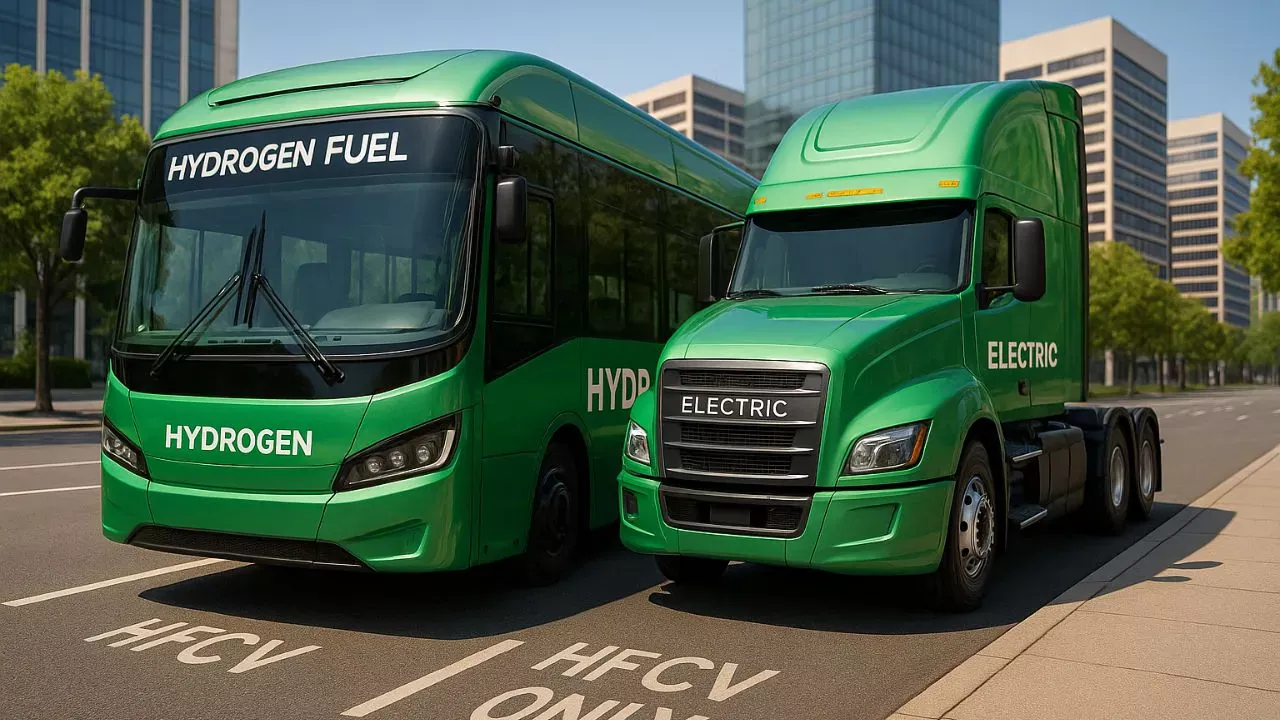New Delhi, April 22, 2025 – India’s push for sustainable transport is accelerating in 2025, with hydrogen fuel-cell vehicles (HFCVs) and electric trucks emerging as game-changers in the country’s green mobility landscape. These innovations, alongside growing corporate adoption of electric vehicles (EVs), are paving the way for a cleaner, greener future on Indian roads.
Hydrogen Fuel-Cell Vehicles: A New Frontier
Hydrogen fuel-cell vehicles in India are gaining attention as a promising alternative to battery-powered EVs. Global automaker Toyota is spearheading this shift, promoting HFCVs for their unique advantages. Unlike traditional EVs that rely on charging stations, HFCVs generate electricity from hydrogen, offering faster refueling (3–5 minutes) and longer ranges—ideal for India’s diverse terrain and limited charging infrastructure. Toyota’s advocacy highlights how HFCVs can complement India’s EV ecosystem, especially for long-haul transport and urban mobility.
With India’s charging network still expanding, HFCVs address a key challenge by reducing dependence on widespread charging stations. As government policies like the PM E-DRIVE scheme support clean energy, HFCVs could play a vital role in achieving India’s 2030 goal of 30% electric and alternative-fuel vehicle sales.
Electric Trucks Power Logistics
The electric truck market in India is also heating up, with new players entering the scene. Jupiter Wagon Limited, a logistics industry leader, has partnered with Canada’s GreenPower Motor Company to launch electric trucks designed for Indian roads. This collaboration marks a significant step toward electrifying heavy-duty transport, a sector critical to reducing emissions in India’s freight and logistics industry.
These zero-emission trucks promise efficiency and sustainability, catering to the rising demand for eco-friendly commercial vehicles. By replacing diesel-powered trucks, this initiative supports India’s climate goals and aligns with the FAME scheme, which promotes EV manufacturing and infrastructure. The entry of electric trucks is expected to inspire other logistics firms to transition to green fleets.
Corporate India Embraces EVs
Corporate sustainability efforts are boosting EV adoption in India. Companies like Grant Thornton Bharat and ABB India are leading the charge by integrating electric vehicles into their operations. From employee commutes to business travel, these firms are deploying EVs to cut carbon emissions and align with India’s green objectives. Their actions are setting a precedent, encouraging other businesses to adopt electric fleets and contribute to cleaner air.
This corporate shift is creating a ripple effect, with more companies exploring EVs for cost savings and environmental benefits. As charging infrastructure grows—supported by public-private partnerships—businesses find it easier to transition to electric mobility.
A Multi-Pronged Approach to Green Mobility
India’s green mobility in 2025 reflects a dynamic, multi-faceted strategy. Key developments include:
- Hydrogen fuel-cell vehicles: Offering fast refueling and long ranges, ideal for India’s infrastructure challenges.
- Electric trucks: Reducing emissions in logistics with zero-emission commercial vehicles.
- Corporate EV adoption: Driving demand for EVs through sustainable business practices.
These efforts are backed by government initiatives like the PM E-DRIVE and FAME schemes, which provide incentives for clean transport and charging infrastructure. With industry leaders like Toyota and Jupiter Wagon Limited innovating and corporates embracing sustainability, India is on track for a transformative shift in mobility.
Looking Ahead
As India’s green mobility evolves, the synergy of HFCVs, electric trucks, and corporate EV adoption is setting the stage for a sustainable future. By 2030, India aims for 30% of vehicle sales to be electric or alternative-fuel-based, and 2025’s developments are a crucial step toward that goal. With continued policy support and industry innovation, India’s roads are poised to become cleaner and greener.

